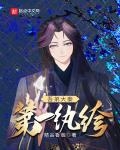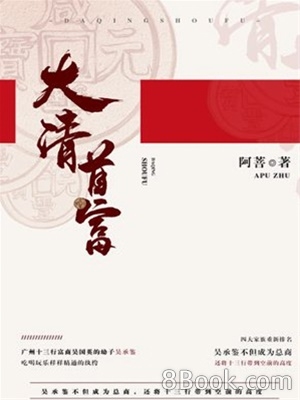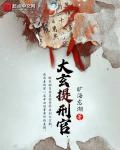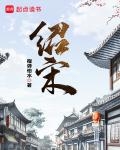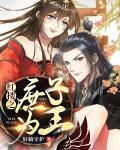Chapter 186: The Third Suppression (Part 4)
Qian Qing was ordered to go with the sound of drums and trumpets. Lei Hu also wanted to go, but he knew that if he followed, it would only be a waste of manpower. Moreover, Qian Qing's character was so strong that Lei Hu would only become a follower if he followed. Moreover, Lei Hu was only the deputy chief of staff at this time, while Qian Qing was the deputy general, second only to Huo Chong in status.
The specific work was not beyond the capabilities of the General Staff at this time, so Lei Hu simply withdrew his thoughts and thought about what the "fatal flaw" that Huo Chong mentioned was.
After thinking for a while, Lei Hu still couldn't figure it out, so he asked directly, "Sir, what exactly is the fatal flaw you are talking about?"
"Knowing yourself and the enemy, you will be victorious without danger; knowing heaven and earth, you will be victorious without limit. You must know this."
"Yes." Lei Hu answered immediately. When he was studying with Huo Chong, he realized that the Art of War by Sun Tzu did not talk about "knowing yourself and knowing the enemy", but "knowing the enemy and knowing yourself". The logical relationship here made Lei Hu feel indescribable.
"Our army currently knows neither ourselves nor the enemy. It is all thanks to our equipment and organization that we are superior to the Qing army. If our army could grow to the point where it knows itself, Lei Hu, you would understand how easily we should win. Alas..." Huo Chong sighed helplessly.
Lei Hu felt that this statement seemed to make sense. However, Huo Chong did not describe the specific content, but just talked about it in general terms, making Lei Hu confused about what was going on.
As I was thinking, I heard the rumble of artillery fire. I turned around and saw white smoke rising from the high ground. The battle had already begun.
The Qing army sent a thousand people to attack the high ground. When the group arrived at the bottom of the hill and lined up, ready to fire volleys at the Han army on the high ground, the artillery on the high ground opened fire, and iron sand and gravel came down like a storm.
The Qing army could not stand the bombardment and turned to flee, leaving behind the dead and wounded. The dense fleeing formation was then hit by further artillery fire.
If iron sand and gravel had to hit the vital points to kill a Qing soldier, the pursuit artillery fire was completely different. This time Qian Qing ordered the use of grapeshot.
Grapeshot is a net bag filled with a certain amount of iron balls, which looks like a bunch of grapes. When this shell is fired, the high heat and huge impact force will tear the net bag apart in mid-air, and the iron balls will immediately scatter in the direction of the launch and smash into the fleeing crowd.
Unlike iron sand and gravel, each iron ball of grapeshot weighs about one or two taels. If it hits a person's vital parts, the person will die immediately. Even if it doesn't hit the vital parts but hits the limbs, the result is also broken bones and tendons.
The fleeing Qing soldiers fell to the ground when they saw the people around them screaming, and some were even hit so hard that their heads were pierced. They looked extremely miserable. The Qing soldiers were so frightened that they screamed and sped up their escape. As a result, the more they ran, the more concentrated they became.
Qian Qing was just watching and didn't want to give orders. Seeing that the battalion commander wanted to stop shooting, he immediately objected, "Just shoot at the back of the Qing army!"
The battalion commander did not dare to resist and quickly passed on Qian Qing's order. The artillery continued to fire until the Qing army escaped from the designed range of 300 meters.
From the high ground to the 300-meter range of the three-jin cannon, hundreds of Qing soldiers were lying in disarray. Some died, and some groaned loudly.
The battalion commander had never expected that such a level could be achieved with just a dozen three-jin cannons, and he could not help but cheer loudly . The brothers in the battalion also cheered, and the high ground was immediately filled with thunderous cheers.
Yue Zhongqi, who was watching the attack fail completely, frowned and was thinking about whether to kill the garrison commander. Soon, Yue Zhongqi heard the news that the garrison commander had died in the battle, so he did not order the execution.
The loss of one thousand men is only one percent of the 100,000 troops, and it does not affect the combat effectiveness at all. Moreover, the casualties are only 500. However, the impact of this defeat is far more important than this number of troops. Yue Zhongqi wants to send another 2,000 troops to test Huo Chong's right wing, and the guard's face is very ugly. After hesitating for a moment, the guard asked tentatively: "Marshal, should we bombard these rebels first?"
Yue Zhongqi thought it made sense. But after thinking about it again, he just shook his head and said, "We'll fight again tomorrow."
That night, torches flickered on the Qing army's position on Yue Zhongqi's side. The long team dragging thousands of pounds of heavy red cannons appeared dim in the light of the torches, like wronged souls and evil spirits in hell strung together by long chains of atonement.
After observing the movements of the Qing army, Huo Chong's men immediately began to dig trenches. Thousands of men and horses worked together like gophers trying to dig their way to the underworld.
At dawn, Yue Zhongqi and other scouts reported that Huo Chong's army did not flee overnight and remained on the opposite side. Without asking any more questions, he directly ordered the red cannon to fire.
As soon as the cannons sounded, the Han army immediately jumped down from the trenches. With just such a simple military arrangement, the firing of hundreds of red cannons was immediately useless. These solid shells fell to the ground, and apart from making some pits on the ground, they could not directly hit any of the Han army's personnel.
Since it didn't hit the target directly, it has no lethality.
The bombardment did not last long. In order to be strong and prevent the barrel from exploding, the Qing Dynasty artillery was cast very thick. This heavy structure made the barrel of the artillery an excellent heat storage material. When the artillery became hot, the billowing heat made the gunners dare not approach, and the shooting naturally stopped.
As soon as the bombardment ended, the Han army jumped out of the trenches and formed up again.
Seeing that the enemy had fired hundreds of shells but to no avail, the Han army lost its previous strong panic. Under the orders of the company commander and platoon leader, the Han army cheered loudly, expressing mockery to the Qing army on the opposite side.
Such fierce bombardment was rare in Yue Zhongqi's career. When dealing with those rebellious people, a few shots would make them flee in panic. The war with the Junggar was more of a mobile war, with both sides fighting and moving, and it was impossible to complete such intensive shooting.
Hearing the thunderous cheers from the Han army, Yue Zhongqi wanted the Qing army artillery to fire a few more shots. However, the gunners could not get close to the artillery, and some of the brave ones simply poured water on the guns.
With a hissing sound, white mist rose from the cannon. However, it was like a drop in the bucket. The cannon was still scorching hot and it was impossible to continue operating it.
Seeing the situation like this, Yue Zhongqi made up his mind and ordered: "Order the Henan general to lead the attack."
The Henan General was captured outside Jinan during the second encirclement campaign and has not been heard from since. The current Henan General is a newcomer, and although the Henan Town has lost more than half of its troops, it still has more than 5,000 men.
Following Yue Zhongqi's order, the Henan general had no choice but to command his troops to march towards the Han army.
Even though he knew that Yue Zhongqi was the one chosen by Emperor Yongzheng, the Henan general still felt resentful and decided that as long as he survived this time, he would report Yue Zhongqi and let him know that even an old dog can have some teeth!
Yongzheng sneezed, perhaps through telepathy. The cabinet ministers beside him put down their pens and looked up at Yongzheng.
Rubbing his nose in a very unpresentable manner, Yongzheng smiled and said, "It's okay. But I have an idea recently. It's not good for the war situation to have you running around every day. It's better to set up a study room and let the cabinet ministers take turns to be on duty."
After these words came out, some ministers breathed a sigh of relief. Although being summoned by Yongzheng to exchange was the job of the cabinet ministers, running back and forth was always too tiring. If there was a study room, at least everyone could take a break when they were tired. It was just a duty, and there was no need to be suddenly called out of bed by Yongzheng to relax.
Of course, ministers like Zhang Tingyu who were more law-abiding thought of the court system.
It is a rule that outsiders cannot stay overnight in the palace. This new study is full of cabinet ministers, which is even more inappropriate. Thanks to Huo Chong, the saying that Yongzheng came to power is becoming more and more true. Longkodo was by Kangxi's side, which led to Yongzheng having the opportunity to know Kangxi's affairs at any time...
Ma Qi spoke up, "I wonder what the emperor wants to name this study?"
"Oh...it's called...the Grand Council." Yongzheng replied.
At this time, Yongzheng did not know that he had made this institution, which would become famous in the days after the Qing Dynasty, appear ahead of time.
The Grand Council was the name of an official office in the Qing Dynasty, also known as the "Military Affairs Office" or the "Prime Minister's Office". It was the central authority of the Qing Dynasty and was established in the seventh year of Emperor Yongzheng's reign (1729) due to the deployment of troops to the northwest. Emperor Yongzheng was afraid that the cabinet was outside the Taihe Gate and would leak secrets, so he began to set up the Grand Council Room inside the Longzong Gate and selected the most careful and meticulous people in the cabinet to work and write documents to handle urgent military affairs and assist the emperor in handling government affairs. In the tenth year of Emperor Yongzheng's reign (1732), it was renamed the "Military Affairs Office". It had military ministers and military secretaries, all of whom were part-time positions. The Grand Council was re-established during the reign of Emperor Qianlong, and from then on it became the central authority of the Qing Dynasty until the end of the Qing Dynasty.
The Grand Council was in charge of military and political power and became the highest state organ in power. It was completely under the direct control of the emperor and was equivalent to the emperor's private secretariat. At the same time, the Grand Council was the highest state organ in power, but in form it was always a temporary institution.
In addition, there were no formal regulations on the office space and officials of the Grand Council, nor were there any ranks or salaries.
After the emergence of the Grand Council, the title of "Grand Councilor" began to appear among Qing Dynasty ministers.
Given Yongzheng's temperament, few ministers dared to oppose whatever he wanted to do. Moreover, this arrangement was informal, so no one dared to say anything.
Soon, Ma Qi and Zhang Tingyu drafted the documents, and then the cabinet ministers moved to Longzong Gate to start working in less than a day.
On the first day of the establishment of the Grand Council, the latest war situation was received. The so-called latest is only relative. Yue Zhongqi reported to Yongzheng that Huo Chong had been officially used to fight against him, and the war was about to start in full swing.
Yongzheng was very much looking forward to it. Since he had finally confirmed Yue Zhongqi, he was expecting Yue Zhongqi to bring good news and completely wipe out the villain Huo Chongzhe.

